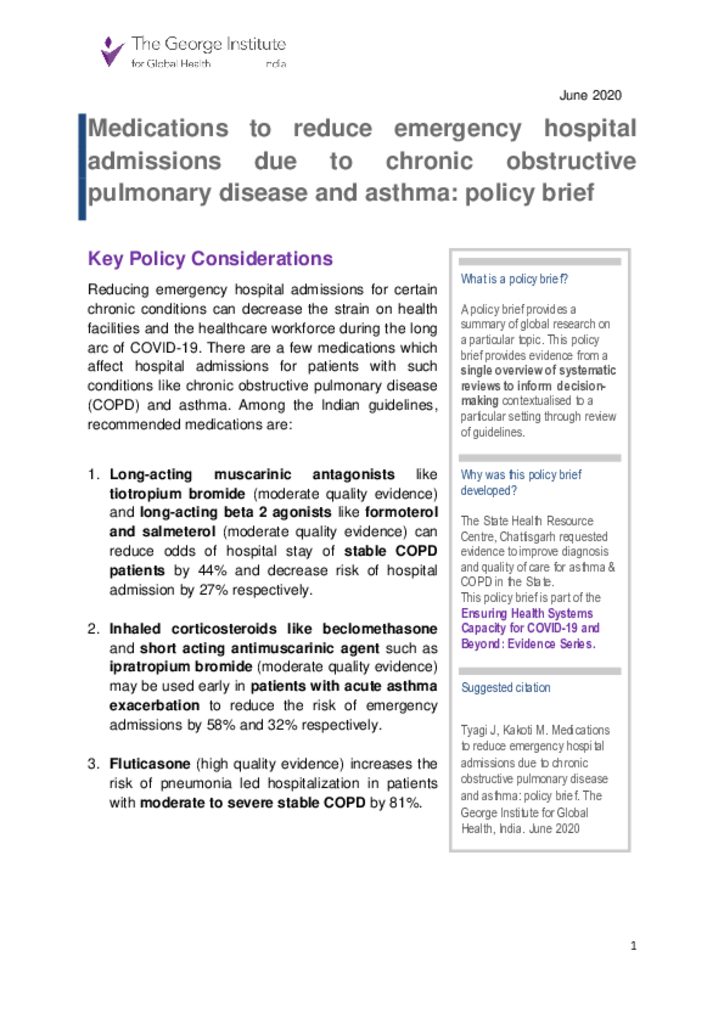
Medications to reduce emergency hospital admissions due to chronic obstructive pulmonary disease and asthma: policy brief
The pandemic is putting an unprecedented demand on health systems and the health workforce in India and across countries. Emergency hospital admissions for chronic conditions can further stretch an already strained public health system. There are medications which can affect hospital admissions for patients with such conditions like chronic obstructive pulmonary disease (COPD) and asthma.
This policy brief summarises evidence on such medications from a single high-quality overview of systematic reviews. Recommendations on the medicines based on available evidence are:
- Long-acting muscarinic antagonists like tiotropium bromide (moderate quality evidence) and long-acting beta 2 agonists like formoterol and salmeterol (moderate quality evidence) can reduce odds of hospital stay of stable COPD patients by 44% and decrease risk of hospital admission by 27% respectively.
- Inhaled corticosteroids like beclomethasone and short acting antimuscarinic agent such as ipratropium bromide (moderate quality evidence) may be used early in patients with acute asthma exacerbation to reduce the risk of emergency admissions by 58% and 32% respectively.
- Fluticasone (high quality evidence) increases the risk of pneumonia led hospitalization in patients with moderate to severe stable COPD by 81%
Download policy brief (PDF 221 KB)
This report is a part of the Ensuring Health Systems Capacity for COVID-19 and Beyond: Evidence Series. The series aims to provide high quality and contextualised evidence from systematic reviews or rapid evidence synthesis to work on the opportunity the COVID-19 scenario offers i.e., to build a strong, resilient and equitable health system in India and other low-and-middle income countries (LMICs).



